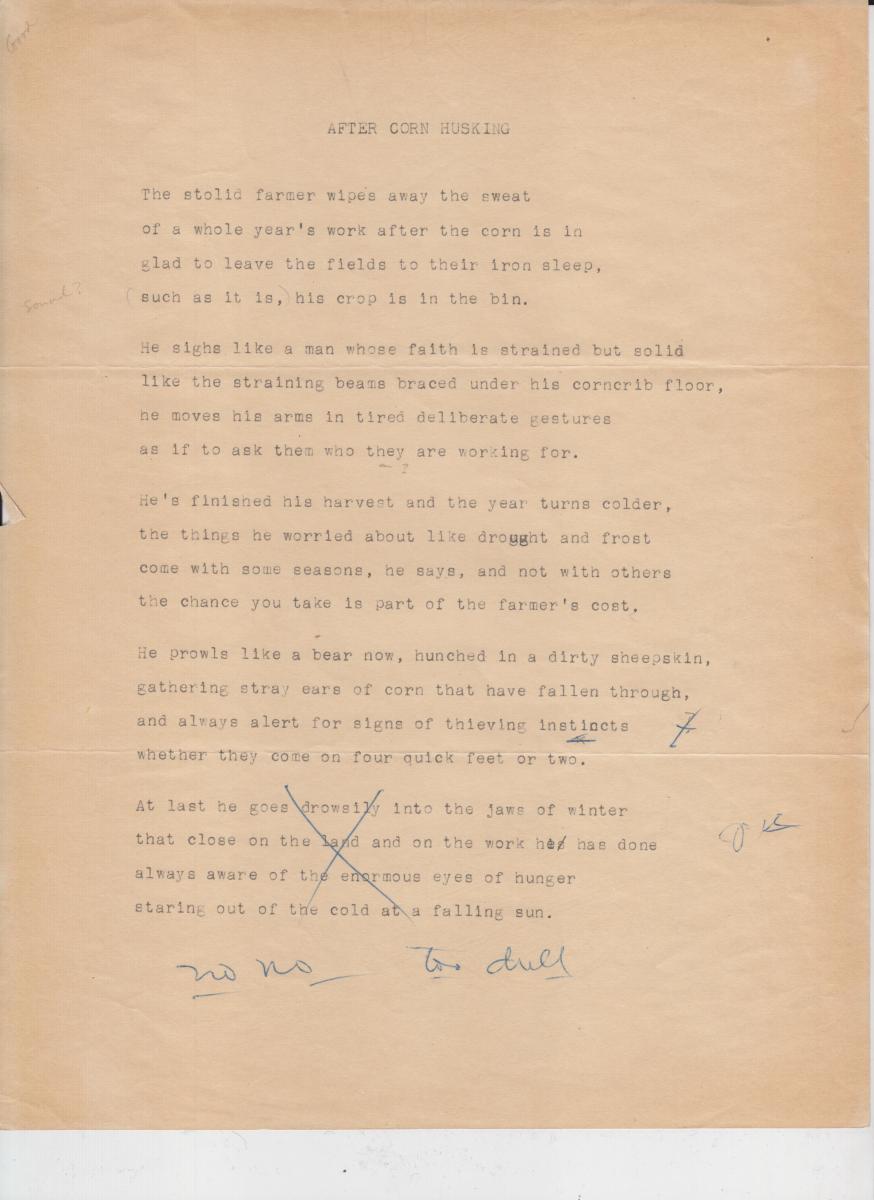After Corn Husking
The last load ends the day and the day
the season and a tired man leans on his courageous hands
locked on a shovel.
The stolid farmer has brought home his corn.
Time in a seed, a stalk, an ear
is the measure of his treasure,
the days of his convictions
lie yellowly heaped
in the low arch of autumn sunset.
Soon enough winter in a sheepskin coat
will back up his hunger wagon to the cribs
and yell, roll it down, you Hayseed,
can’t you hear the steers bawling?
But now the stolid farmer patiently
shoulders his harvest to defy the lean
and leaping teeth of his old enemies
gathering all that his arms can hold
before the light fails
and the cold comes.
Publication Details
University Review 9 (Winter 1942) 95.
The above 1942 poem was published in Complete Poetry of James Hearst with "Cornhusking" as one word. The variant version below was published in Man and His Field in 1951. It is this version that Hearst chose to record in the below audio file.
After Corn Husking
The stolid farmer wipes away the sweat
of a whole year’s work after the corn is in,
glad to leave the fields to their iron sleep,
such as it is, his crop is in the bin.
He sighs as if his faith was strained but solid
as square oak beams braced under his corncrib floor,
he moves his arms in tired deliberate gestures
as if to ask them who they are working for.
He prowls like a bear now, hunched in a dirty sheepskin,
gathering stray ears of corn that have fallen through,
and always alert for signs of thieving instincts
whether they come on four quick feet or two.
Some morning soon he knows the hunger wagon
that winter drives through countryside and town
will back up to his cribs: saying ‘‘You Hayseed,
the steers are bawling, come on, roll it down.’’
Manuscript

Permission to reproduce work from the James Hearst Papers has been granted by the Special Collections Department of the University of Iowa Libraries.

Notes and Commentary